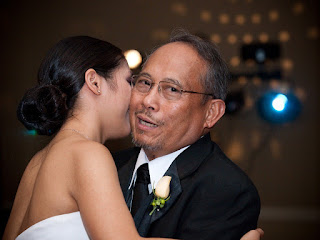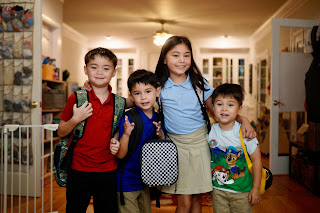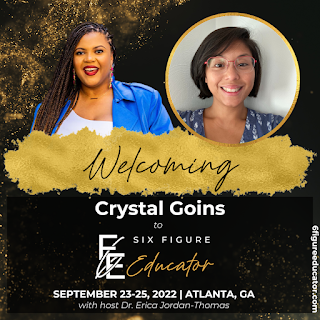The Beauty of Correction: Grow. Me. Love Me. Change Me.
Dear Readers,
I am my daddy's daughter- here on Earth and up in Heaven.
Because of that, I. full-heartedly. believe. in. strong. discipline. for. children.
I'm not talking specifics of spanking, time out, etc.
I'm talking about...
Clear Expectations and Boundaries.
Consistent Consequences.
Verbal Accountability.
Verbal accountability is the glue that keeps everything together.
It's the art of old fashioned- correction.
When I first became a parent, I feel like it was not a "thing" to correct kids because they were just kids.
Raising and teaching them years later, I see firsthand how that breeds self-centered children with no rules, no boundaries, and no self-control. They are a product of their impulses and they can't control their emotions.
It's a sad state of affairs.
Here is what I know:
If I don't correct a child, he/she will never learn, change, or grow.
If I avoid correction because I fear a child's reaction, he/she will never learn, change, or grow.
He/she has sole control of his/her life and probably the lives he/she lives with.
How. scary. is. that.
As an adult, living in this world is NOT easy. Doing it alone is possible to a point as long as you don't need a lot or you find a "person" to get things done for you.
However, I don't know if that's probable for some of my students. So, I fear the worse for them.
I don't want them to become another statistic in the areas of mental illness, anxiety, depression, jail, or suicide.
For that truth, I have bucked up- a lot- and learned how to "verbally" keep my kids accountable at home and school.
These are the things I've learned that make correction beautiful.
1. Words of correction need to come out with motives to love and grow your child.
I tell my personal kids all the time- I don't tell you to _______ because I just think it would be cool. I tell you to do ___________ because I love and care for you. It's my job, as your parent, to love, train, and protect you. I take that job seriously.
For my students, I always lead in my correction with: What type of teacher would I be if I let you think __________ was okay. I love you and think you can be better than that.
2. Correction is needed with both rules/expectations AND within social interactions with peers or siblings to build a truly empathetic community.
In the age of smartphones and texting- people don't socialize and converse anymore. Our kids are failing miserably at appropriate social etiquette especially with words. They don't live in a developmentally appropriate world (by any means) so their talk is MEAN, ROUGH, and RUDE- majority of the time.
They all hunger for attention and they've just learned to do and say things to get it- with no regards to how that would make others feel.
Don't blame the kids. Our society lacks empathy.
For this reason,
I listen in on how they treat and talk to each other. I observe their mannerisms and check their "hearts" and motives on why they do or say some things. We have conversations about it constantly and if someone's heart was affected- we talk about how we can "take care of it."
It ends up looking like a coaching session of conflict resolution and reconciliation.
It's such a natural rhythm in my household and classroom, that my kids genuinely CARE FOR EACH OTHER and know true forgiveness and empathy.
At home, it makes our family bond stronger.
At school, it makes my class truly a team.
3. Lastly, I teach my kids correction means "Make a change."
Because of that, I. full-heartedly. believe. in. strong. discipline. for. children.
I'm not talking specifics of spanking, time out, etc.
I'm talking about...
Clear Expectations and Boundaries.
Consistent Consequences.
Verbal Accountability.
Verbal accountability is the glue that keeps everything together.
It's the art of old fashioned- correction.
When I first became a parent, I feel like it was not a "thing" to correct kids because they were just kids.
Raising and teaching them years later, I see firsthand how that breeds self-centered children with no rules, no boundaries, and no self-control. They are a product of their impulses and they can't control their emotions.
It's a sad state of affairs.
Here is what I know:
If I don't correct a child, he/she will never learn, change, or grow.
If I avoid correction because I fear a child's reaction, he/she will never learn, change, or grow.
He/she has sole control of his/her life and probably the lives he/she lives with.
How. scary. is. that.
As an adult, living in this world is NOT easy. Doing it alone is possible to a point as long as you don't need a lot or you find a "person" to get things done for you.
However, I don't know if that's probable for some of my students. So, I fear the worse for them.
I don't want them to become another statistic in the areas of mental illness, anxiety, depression, jail, or suicide.
For that truth, I have bucked up- a lot- and learned how to "verbally" keep my kids accountable at home and school.
These are the things I've learned that make correction beautiful.
1. Words of correction need to come out with motives to love and grow your child.
I tell my personal kids all the time- I don't tell you to _______ because I just think it would be cool. I tell you to do ___________ because I love and care for you. It's my job, as your parent, to love, train, and protect you. I take that job seriously.
For my students, I always lead in my correction with: What type of teacher would I be if I let you think __________ was okay. I love you and think you can be better than that.
2. Correction is needed with both rules/expectations AND within social interactions with peers or siblings to build a truly empathetic community.
In the age of smartphones and texting- people don't socialize and converse anymore. Our kids are failing miserably at appropriate social etiquette especially with words. They don't live in a developmentally appropriate world (by any means) so their talk is MEAN, ROUGH, and RUDE- majority of the time.
They all hunger for attention and they've just learned to do and say things to get it- with no regards to how that would make others feel.
Don't blame the kids. Our society lacks empathy.
For this reason,
I listen in on how they treat and talk to each other. I observe their mannerisms and check their "hearts" and motives on why they do or say some things. We have conversations about it constantly and if someone's heart was affected- we talk about how we can "take care of it."
It ends up looking like a coaching session of conflict resolution and reconciliation.
It's such a natural rhythm in my household and classroom, that my kids genuinely CARE FOR EACH OTHER and know true forgiveness and empathy.
At home, it makes our family bond stronger.
At school, it makes my class truly a team.
3. Lastly, I teach my kids correction means "Make a change."
We've started this year with a new "ditch the clip initiative" as a school which meant I had to give up all my public displays of behavior management. So, I had to be super creative on how to keep my kids accountable in a meaningful way.
This is what I came up with.
This is my Delta bucket.
Delta is the universal symbol for change.
Even my husband uses it in his notes for patients.
I use it in the classroom to remind students that a change needs to be made.
They each are assigned a number, so they each have a card with their number on it. It's the 94th day of school, so I don't warn them usually by now. I just ask them for their card and tell them "I need you to make a change." Once the change is made, I thank them for making a change and give their card back. If the card stays in the bucket by lunch or recess, I have consequences in place. Honestly, it does happen but not that frequently. If I kindly remind them,"You are better than that. You can make that change and get back to learning." They usually respond pretty positively. I'm a big believer in strong relationship building with students- so they do take my encouragements as truth.
This is a very unorthodox way of using a card system as a teacher. Usually, card systems are punitive or a form of punishment. However, my system is a gentle reminder that they have made a mistake and need to take responsibility to do something about it.
For years, I would coach kids off the cliff with the saying- "So what. You made a mistake. Does that make you a bad person? No! It's just a mistake. As a human, I make mistakes all the time."
Correction needs to come out of that mindset.
It's just a mistake that needs to be fixed.
Not a label or judgement of the type a person that child is or going to be.
On Friday, I had a anxious moment with a child who was asked to "make a change" over something he failed to do right in his work- after being warned it was going to be checked very specifically for any errors. In short, he made quite a scene on how it was unfair and everyone should "make a change" then too.
So, I sat him down and had a private talk.
We talked about basic life cycles of plants and even his growth as a human.
I said " ______, Change is not a bad thing. I see that it still scares you, but it shouldn't. Change means growth. If the seed stays a seed- we would never have a strawberry. Even if the seed made it to a sprout and nothing further, we would still have no strawberry.
Change is necessary. Growth is good.
Even you. Do you still want to look like this when you become a man? Do you desire to grow and change like your dad?"
By the end of the conversation, I could tell we were on the same page. I shared our interactions with the class and I could tell it sat comfortably in all their hearts.
They know the things they are learning are getting harder and new. So, correction has been coming alot lately. It doesn't feel comfortable. However, knowing that change leads to growth, makes the work a little easier to swallow.
Between a positive attitude towards correction and a heart full of grit, I really feel like I'm growing the strongest set of students I've ever taught.
I'm proud and confident in how I correct these children.
I'm proud to see my own daughter and sons engaging in forgiveness and dealing with conflict sometimes without prompting.
I know it comes from a place of love and nurturing.
It will help my kids become stronger citizens of the world!
Thank you Jesus!
Love. Always,
Crystal




Comments
Post a Comment